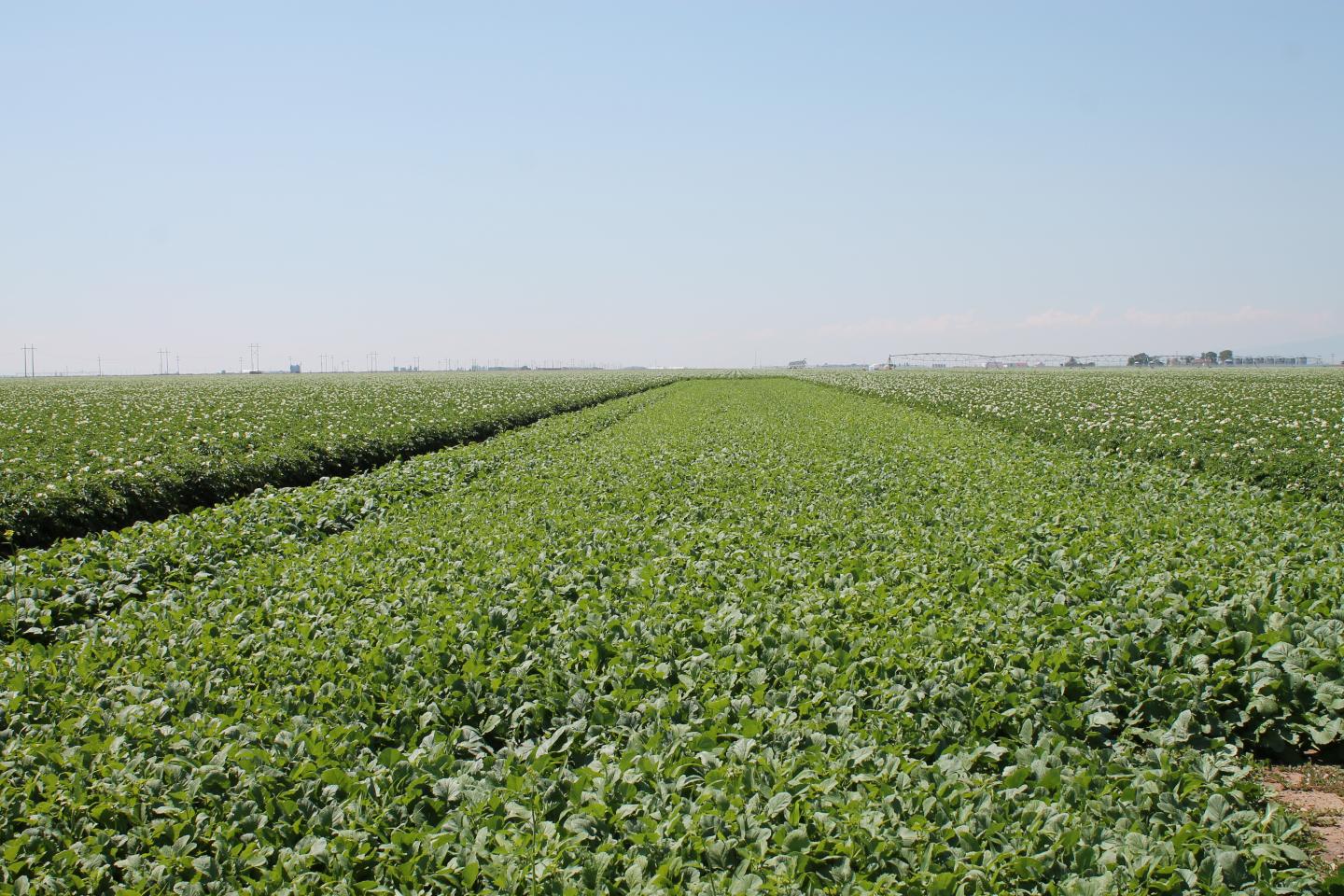Exploring best practices for strong, disease-resistant potato crops

Credit: Colorado State University
For several years, Colorado State University agricultural researchers have been scrutinizing the nutrient-rich soil that feeds the state’s flourishing potato business.
Colorado is among the top potato producers nationwide, but growers in the San Luis Valley face perennial threats to their crops, including soil-borne pathogens that kill plants before harvest, as well as drought and other challenges. For nearly four years, plant pathologists Courtney Jahn and Jane Stewart have worked closely with Colorado potato growers, leading state-funded research to assess soil health, disease mitigation and crop rotation strategies.
Now, together with researchers from nine other universities, Jahn and Stewart will continue exploring best practices for strong, disease-resistant potato crops in Colorado and beyond, as co-recipients of an $8 million national grant.
Jahn and Stewart, both faculty members in the Department of Bioagricultural Sciences and Pest Management, are sharing in the four-year grant awarded by the U.S. Department of Agriculture’s National Institute of Food and Agriculture, under the Specialty Crop Research Initiative funding program.
The project’s aim is to marshal interstate expertise to fully understand all factors affecting soil health and soil-borne potato diseases, which account for half of all annual U.S. potato crop losses. In the U.S., potatoes are grown on more than 1 million acres in 30 states, with a farm-to-gate value of $4 billion. The top producing states, comprising four major growing regions, include: Washington, Oregon, North Dakota, Minnesota, Wisconsin, Michigan, Maine and Colorado.
The overall goal of the four-year project, which is led by researchers at the University of Minnesota, will be to enhance the environmental quality and economic viability of potato operations in the U.S.
Specific growing challenges vary by region, according to Jahn. For example, regions outside of Colorado have relied on soil fumigants to kill pathogens, such as potato early die, or certain nematodes. Such fumigants, including methyl bromide, are being phased out by the U.S. Environmental Protection Agency due to human and soil health concerns, putting pressure on growers to devise alternative soil-health practices.
Colorado growers do not typically use fumigation to protect their plants, due to the state’s drier climate and higher elevations. However, Colorado does encounter other soil-borne diseases including common and powdery scab, and soft rot.
“The thing that has been so amazing working with Colorado growers is how willing they have been to talk to us about the specific challenges they face,” Jahn said. “They have been instrumental in helping us make the best choices, so we can best help them in the long run.”
In Colorado, the researchers have been looking at soil fertility, microbial changes, and whether pathogen pressures increase or decrease from various cropping schemes, Stewart said. For example, they have explored the use of cover crops and rotational crops like barley and quinoa, and have experimented with bringing in cows to graze cover-crop fields. Stewart leads the collection of soil samples to analyze microbial populations for bacteria, fungi and nematodes, and how those populations change with different rotational cropping systems.
“With the new grant, we can apply some of the same techniques we’ve been using, but now we can test even more rotational schemes,” Stewart said. “Previously we could only do so many, but now we will have the opportunity to do more treatments and build our datasets.”
The Colorado Potato Administrative Committee (CPAC) has been a key partner in connecting Jahn and Stewart with local growers. Using the new federal funding, the researchers will expand their datasets to other growers, as well as conduct further experiments at the San Luis Valley Research Center farm. The farm is part of CSU’s Colorado Agricultural Experiment Station center and facilities network.
The Department of Agriculture grant involves 24 collaborators and includes soil scientists, plant pathologists, potato agronomists, economists and social scientists.
###
Award information: https:/
Media Contact
Anne Manning
[email protected]
970-491-7099
Original Source
https:/




